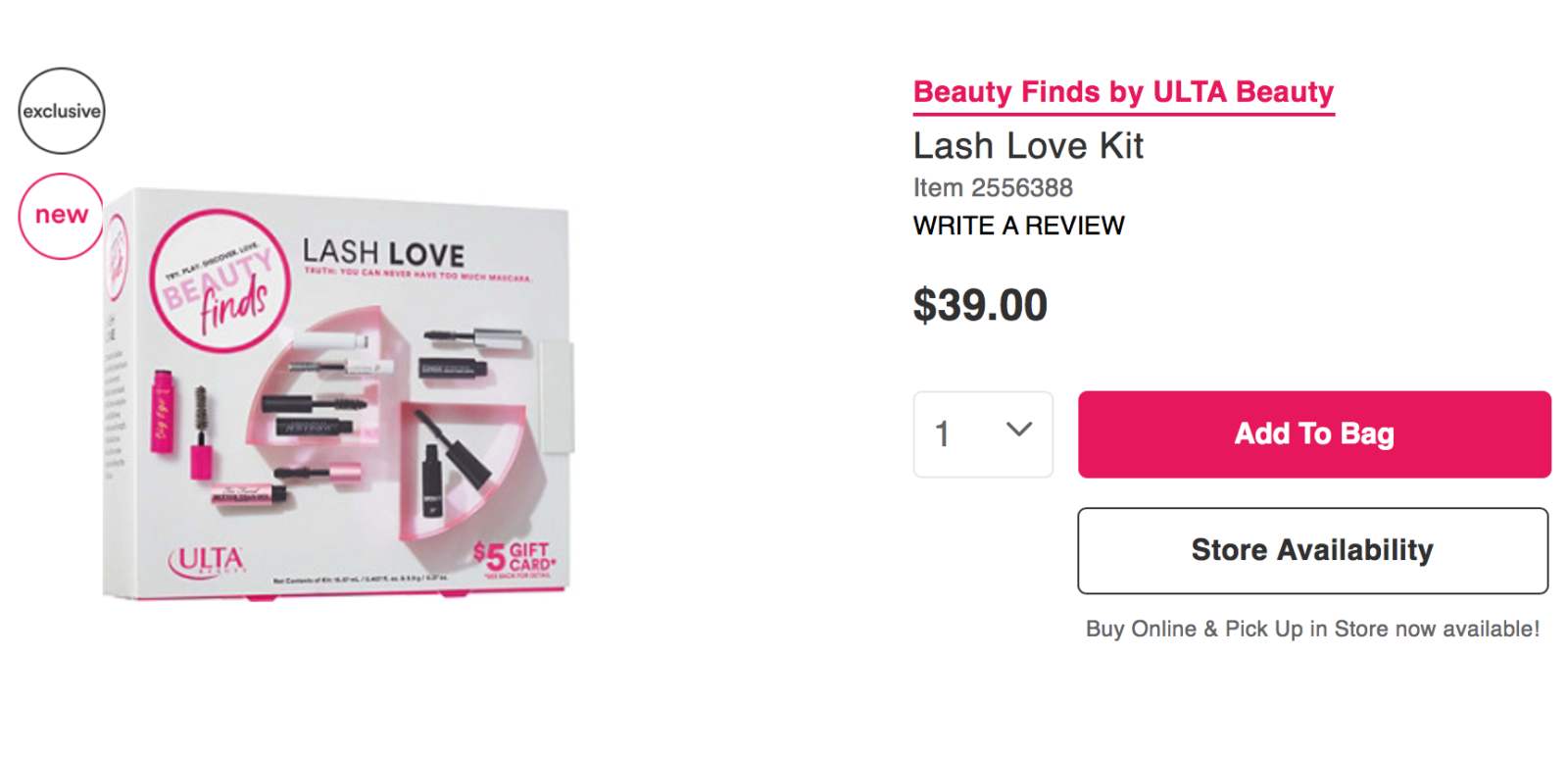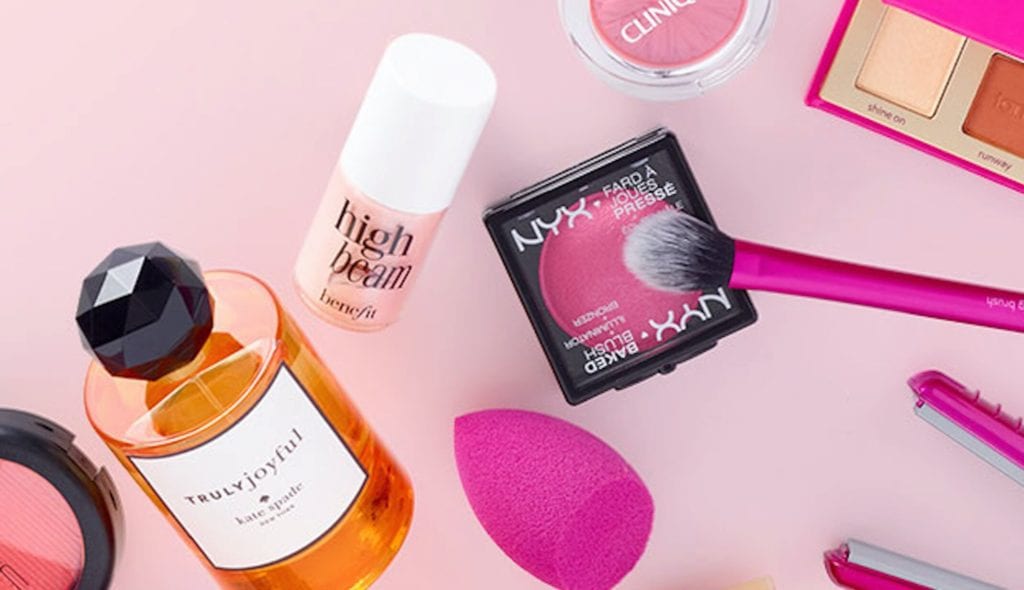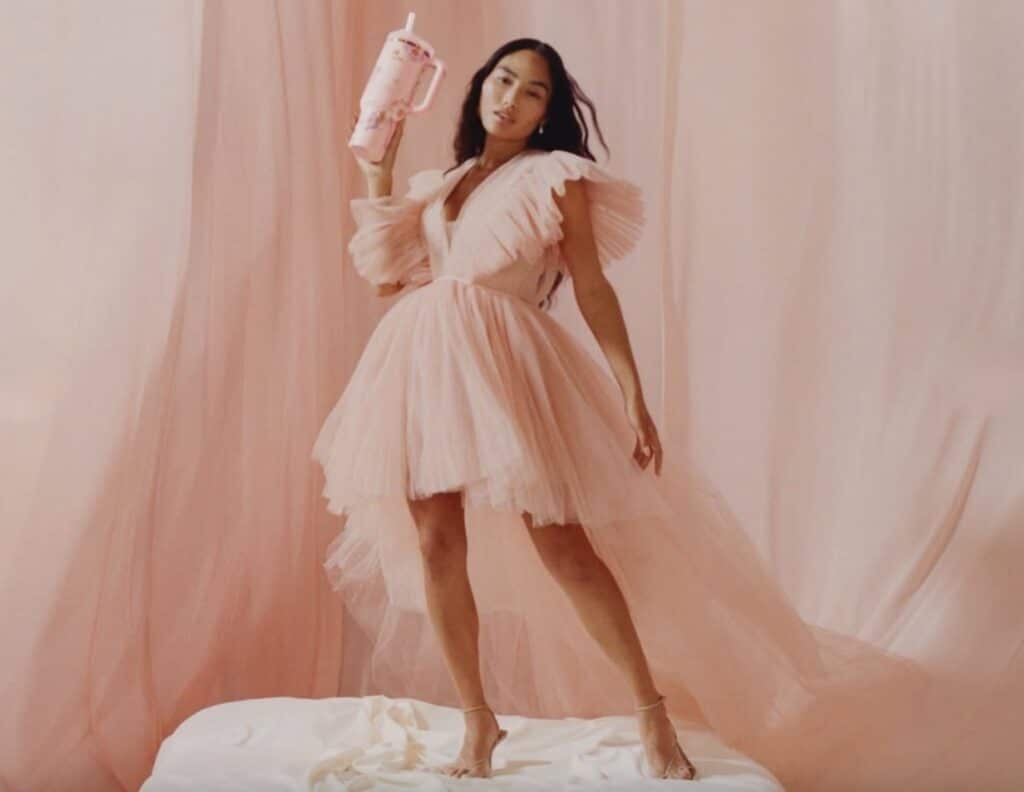Mary Kay and Ulta are battling over lashes … or “LASH LOVE” to be exact. According to the complaint that Addison, Texas-headquartered Mary Kay filed against Ulta in a federal court in Texas this week, the well-known beauty chain is on the hook for jacking its existing “LASH LOVE” trademark and using it for its own mascara products, potentially confusing consumers and thereby, running afoul of federal trademark law.
Mary Kay – which got its start in 1963 and has since grown into a $4 billion-plus per year business – claims that it has sold mascara products sold using its federally registered LASH LOVE® mark since 2011, selling “over $120 million dollars of the popular LASH LOVE products” in that time. Fast forward to this year and the privately owned multi-level marketing company claims that Ulta adopted the mark for its own products and began selling “kit of six mascara products” branded with the “Lash Love” name.
Instead of merely using “Lash Love” in a descriptive capacity, Mary Kay – which operates through a network of approximately 500,000 “Independent Beauty Consultants” in the U.S., who market the company’s products “directly to consumers utilizing, among other direct sales methods, [and] personal websites accessed through MaryKay.com – claims that Ulta is using its “LASH LOVE® as a prominent designator for [Ulta’s] kit,” meaning that the retailer is using it in a source-identifying trademark capacity manner. (The descriptive vs. source-identifying distinction is significant, as trademark law only provides protection (and thus, gives rise to claims for infringement) for marks that identify the source of a goods or services; it does not protect uses – such as descriptive or decorative ones – that do not have source-identifying functions.)
More than just adopting its mark, Mary Kay argues that “the words LASH LOVE appear in bold capital letters on [the Ulta] box with pink trimming, a color that has come to be associated with Mary Kay products, and that appears prominently on the packaging for Mary Kay products,” a further attempt to pass off its products as potentially associated with Mary-Kay.
With such alleged infringement in mind, Mary Kay sent a cease-and-desist letter to Ulta’s general counsel on November 7, 2019, “demanding, among other things, that Ulta cease selling the infringing product, change the name of the listing of the infringing product on the Ulta website, and permanently cease using the LASH LOVE® mark or any confusingly similar marks in connection with cosmetics.”
 Ulta’s “Lash Love” mascara kit
Ulta’s “Lash Love” mascara kit
While Mary Kay claims that Ulta’s counsel did, in fact, respond to its letter, the counsel merely “stated that [Ulta was] reviewing Mary Kay’s letter [and] provided no other substantive response.” As of the time of filing this lawsuit, Ulta has “not provided any further response to Mary Kay’s letter,” per Mary Kay and “continues to sell the infringing product on the Ulta website and in [its more than 1,100] retail stores around the country.”
Such “disregard of [the] cease-and-desist letter shows that Ulta’s conduct is knowing, intentional, willful, malicious, and wanton,” counsel for Mary Kay asserts in the complaint, and goes on to state that Ulta’s “ongoing illegal conduct has caused, and will continue to cause, irreparable harm to Mary Kay’s reputation, goodwill, business relationships, intellectual property, and brand integrity.”
In addition to a jury trial, Mary Kay is seeking injunctive relief to immediately and permanently prevent Ulta from using its LASH LOVE® mark, and monetary damages “in an amount to be determined at trial including, but not limited to, compensatory damages, statutory damages, treble damages, restitution, disgorgement of profits, punitive damages, exemplary damages, and pre- judgment and post-judgment interest as permitted by law.”
The suit comes as Ulta has been making headlines over the past week after Kylie Jenner sold off a majority stake in her eponymous cosmetics company to Coty for a cool $600 million. To date, Jenner “still has a partnership with Ulta to sell her products in its stores,” per CNBC, a relationship that began last November and led to several quarters of revenue growth for Ulta. Yet, despite the Kylie, Coty news, and its additional of Jenner’s sister Kim Kardashian’s KKW beauty collection to its roster of buzzy brands, Ulta’s stock continues to fall, bringing its price down almost 40 percent compared to its all-time closing high in July.
Beginning a month later, however, Ulta’s stock began to drop with the release of the company’s Q2 revenue report, which saw it lower its earnings and revenue growth guidance for the rest of the year. Despite Ulta’s ability to “drive meaningful market share growth in makeup across mass and prestige,” the company stated that it is “clear that cosmetics in the overall U.S. market is challenged … resulting in a soft cycle for the cosmetics category in the U.S. as innovation and newness brought to the market has not driven the expected growth.”
Mary Kay’s lawsuit, thus, “underscores the funk the former highflier has been in,” says Barron’s, and at least “some analysts don’t see it lifting soon.”
*Mary Kay, Inc. v. Ulta Beauty, Inc., and Ulta Beauty Cosmetics, LLC, 3:19-cv-02764 (N.D. Tex.).











